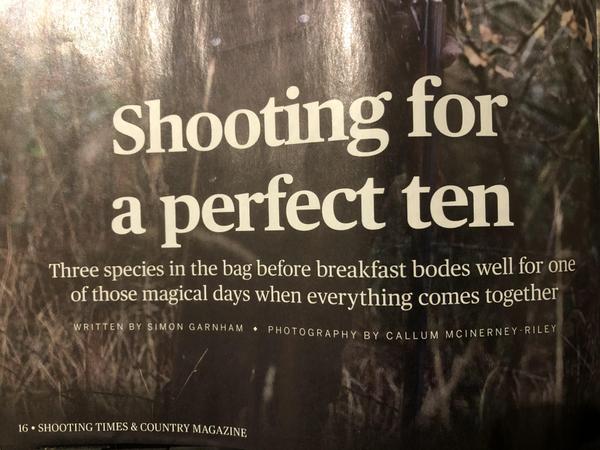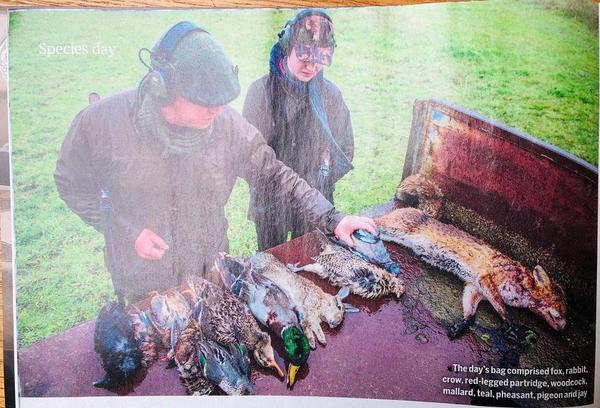Rumors fly after adventurous wolf goes missing in California
Sunday 30 May 2021
Californian wolf
Saturday 29 May 2021
BBC: Elephants counted from space for conservation
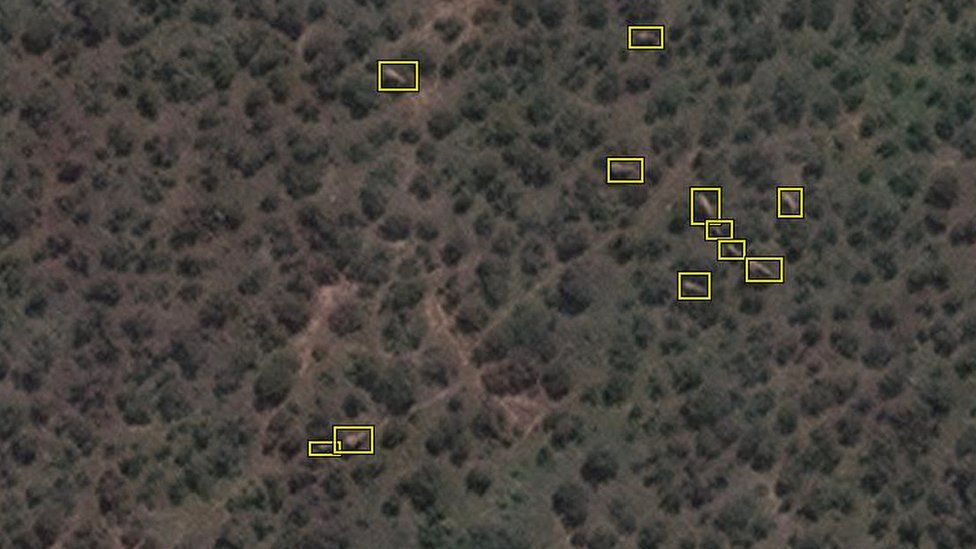 IMAGE COPYRIGHTMAXAR TECHNOLOGIES
IMAGE COPYRIGHTMAXAR TECHNOLOGIESAt first, the satellite images appear to be of grey blobs in a forest of green splotches - but, on closer inspection, those blobs are revealed as elephants wandering through the trees.
And scientists are using these images to count African elephants from space.
The pictures come from an Earth-observation satellite orbiting 600km (372 miles) above the planet's surface.
The breakthrough could allow up to 5,000 sq km of elephant habitat to be surveyed on a single cloud-free day.
BBC: Drones and live-streams: How tech is changing conservation
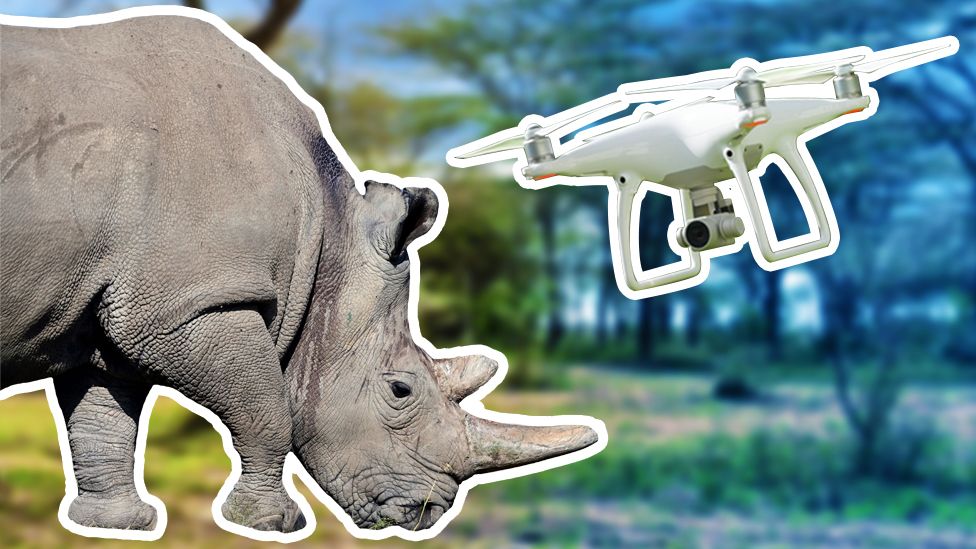 IMAGE COPYRIGHTAFP/GETTY/BBC
IMAGE COPYRIGHTAFP/GETTY/BBCDrones, satellites and laser sensors. It sounds like the tech of an action-packed spy thriller.
Not things you might typically associate with protecting animals.
According to a report by the World Wildlife Fund for Nature (WWF), the planet's wildlife population has plummeted by 68% since 1970, with threats including things like poaching and loss of habitat.
But around the world, animal conservation has now evolved so it's not just rangers and anti-poaching groups monitoring the wildlife of our world.
BBC: Harambe: Gorilla photo to be sold as an NFT five years after he was shot dead
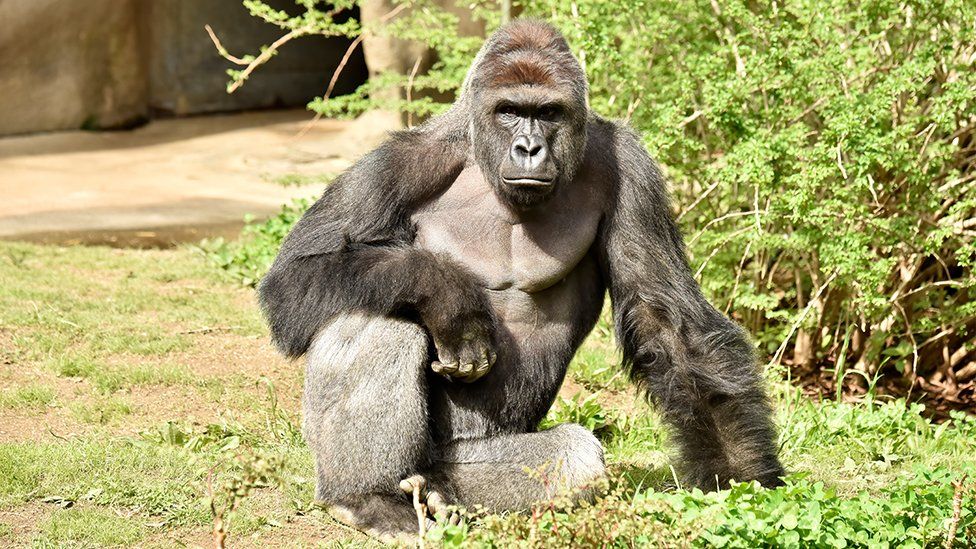 IMAGE COPYRIGHTJEFF MCCURRY
IMAGE COPYRIGHTJEFF MCCURRYA photo of the gorilla Harambe is being auctioned off as a non-fungible token (NFT) to mark five years since he was killed.
The western lowland gorilla was shot dead at Cincinnati Zoo after a three-year-old boy fell into his enclosure.
After Harambe's death, #RIPHarambe and #JusticeForHarambe began trending and protests and vigils were held around the world.
An NFT is like a certificate to say that you own something digital.
It means original versions of viral videos, memes or tweets can be sold as art.
A comparison with the art world would be owning an original Picasso painting versus owning a print - the Harambe NFT in this case is the original artwork.
Cat with tuna can stuck around its neck is finally caught in Cornwall
The RSPCA has confirmed that the moggie is now safe
 RSPCA Cornwall
RSPCA CornwallA cat that was spotted in south east Cornwall with a tuna can stuck around its neck has finally been caught.
The moggie was seen in the Saltash area and was reported to the RSPCA.
Friday 28 May 2021
Wild Justice 62 - a breach of the general licences?
Message Body
|
Thursday 27 May 2021
BBC: Red-foot tortoises found dead at Barry allotment
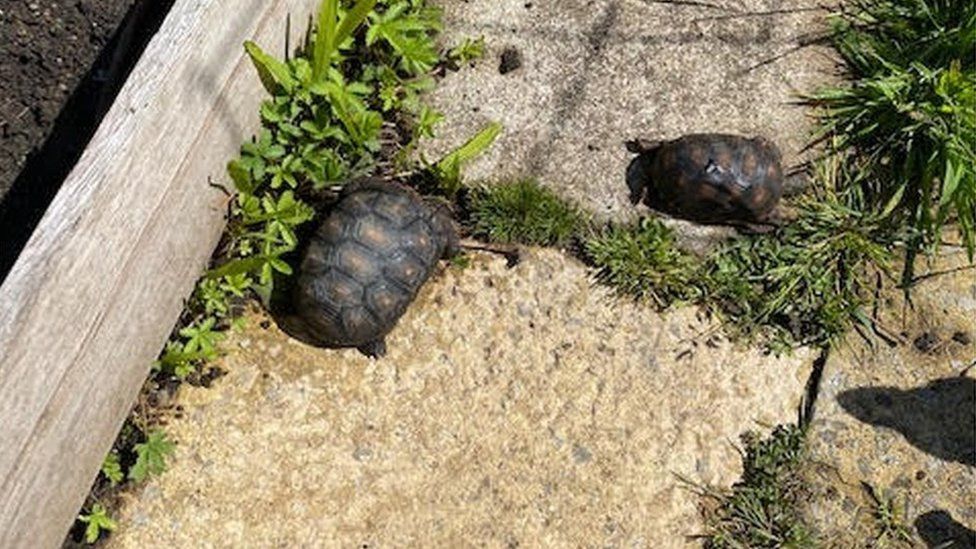 IMAGE COPYRIGHTRSPCA
IMAGE COPYRIGHTRSPCAFive dead young tortoises have been discovered on an allotment in the Vale of Glamorgan.
An animal charity said the red-foot tortoises were found by a member of the public at the Cemetery Road allotment in Barry on Monday.
South Wales Police has been informed and RSPCA Cymru has appealed for information over the "troubling" find.
RSPCA inspector Simon Evans said: "This was a sad and shocking discovery and [we are] making urgent enquiries."
It is believed the five tortoises, all aged between two and 10 years, died at similar times.
Red-foot tortoises can grow to more than 12in (30cm) in length and usually live for about 50 years.
BBC: Green light for 'net zero' equivalent for nature
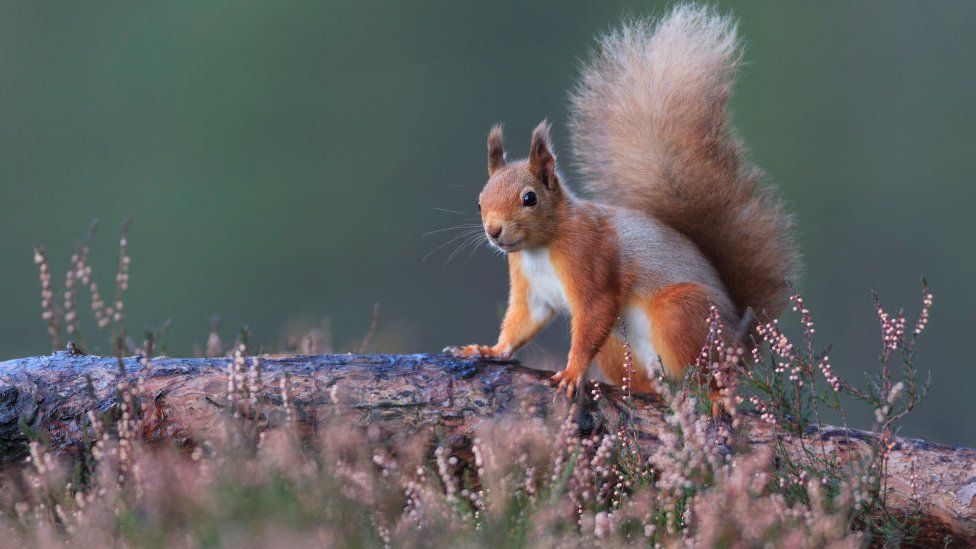 IMAGE COPYRIGHTGETTY IMAGES
IMAGE COPYRIGHTGETTY IMAGESThe government has promised to "halt the decline of nature" as part of a new drive to improve the environment.
More trees are to be planted, the sale of peat will be banned and new targets will be set to return species such as wildcats and beavers to the countryside.
The measures include a legally binding 2030 target to address wildlife loss.
Environment Secretary George Eustice described the move as "a huge step forward".
In a speech from Delamere Forest, in Cheshire, he said: "We hope that this will be the net zero equivalent for nature, spurring action of the scale required to address the biodiversity crisis."
BBC: Climate: World at risk of hitting temperature limit soon
 IMAGE COPYRIGHTREUTERS
IMAGE COPYRIGHTREUTERSIt's becoming more likely that a key global temperature limit will be reached in one of the next five years.
A major study says by 2025 there's a 40% chance of at least one year being 1.5C hotter than the pre-industrial level.
That's the lower of two temperature limits set by the Paris Agreement on climate change.
The conclusion comes in a report published by the World Meteorological Organization (WMO).
The analysis is based on modelling by the UK Met Office and climate researchers in 10 countries including the US and China.
In the last decade, it was estimated that the chance of any one year reaching the 1.5C threshold was only 20%.
Tuesday 25 May 2021
BBC Plague of mice in Australia
Rural Australia has taken a battering over the last few years, with drought, fires and floods. Some farmers finally caught a break with good conditions and a bumper crop. Those conditions were also ideal for mice, and their numbers have exploded across parts of New South Wales. Three farmers spoke with the BBC about living through the worst mouse plague in memory.
https://www.bbc.co.uk/news/av/world-australia-57225103
Saturday 22 May 2021
German fund for nature protection
The Legacy Landscape Fund aims to mobilise public and private finance to support an ambitious nature protection deal at this October’s Kunming summit
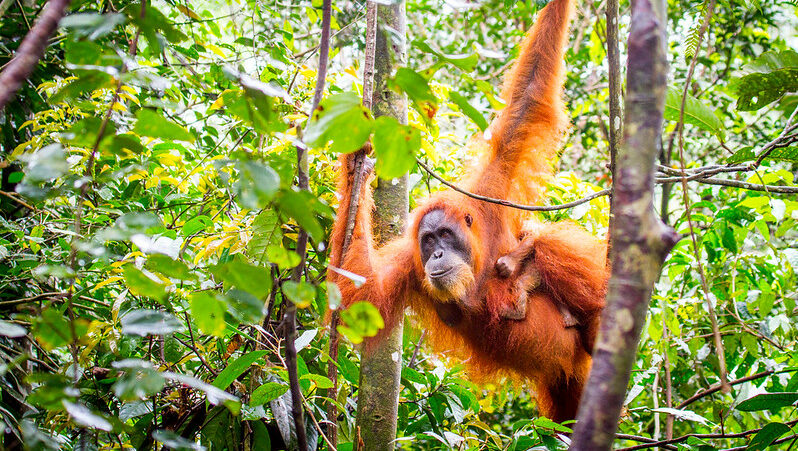
An orangutan in Indonesia's Gunung Leuser national park (Photo: Flickr/Paul Williams)
Germany has launched a $1 billion fund which aims to halt global biodiversity loss and provide long-term financial support for protected areas across three continents.
The launch comes after countries failed to meet internationally agreed 2020 targets to prevent the destruction of plants and wildlife.
The Legacy Landscapes Fund aims to mobilise enough funding from private and public donors to provide 15 years of financial support for 30 conservation areas.
Read on..
Giant skeleton is a nonstory (Via Sharon Hill)
Giant skeleton found on ocean floor
Making the rounds on “mysterious news” sites, a video was posted by a paranormal researcher. It appears to be from a remote underwater vehicle in 2017. The main story appears in the tabloid Daily Star and then copied by others, but not picked up by a reputable source. People who don’t know anything much about vertebrate zoology are speculating that this is some new creature, monster, or remains of a Cretaceous-age animal. It’s most likely the remains of a known animal whose carcass sustains seafloor organisms. This story is nothing to get excited about – it’s another example of amateur mystery mongering. Why didn’t she take it to someone qualified to get a better idea about identification? Because clicks-from-controversy are what’s it’s all about, not truth.

Zombie cicadas (via Sharon Hill)
A fungus could turn some cicadas into sex-crazed ‘salt shakers of death’
https://www.washingtonpost.com/science/2021/05/19/cicada-fungus-sex-drive/Fungus growing inside organisms can take over brain functions and make the organism act in ways that are dangerous, but overall advantageous for the fungus to spread. This story is icky.
What a boar (via Sharon Hill)
Wild boars corner Italian woman at the supermarket and steal her groceries
https://nationalpost.com/news/wild-boars-corner-italian-woman-at-the-supermarket-and-steal-her-groceriesWild boar and feral pigs are aggressive and a growing problem in Italy as well as China, Hong Kong, and even in the U.S. It’s a shame the woman had to sacrifice her groceries to get to her car safely
Thursday 20 May 2021
Save the helmeted hornbill
Head hunted
A beautiful scenic village, a dancing girl, a religious symbol, a face.
Those are just a few examples of the many things carved into the headgear of the mercilessly hunted helmeted hornbill.
These brilliant birds - while alive - spend their time in show-stopping flurries of hysterical laughter and displaying their strikingly weird and dazzlingly unique features - including a helmet used for aerial jousting battles.
But the resurgence of an old, grim fashion has seen people paying small fortunes to have that helmet ripped from the bird’s body, carved into some gruesome ornament and paraded on their mantlepiece.
And the resurgence in hunting is on an unprecedented commercial scale. These birds are being torn from the forest in unprecedented numbers.
This nauseating trend is slicing its way through their population and is sending it spiralling into one of the fastest declines of any species.
This self-indulgent fad for ‘flying ivory’ is nothing short of devastating.
These birds are imperative for the forest’s survival - performing an invaluable role as seed dispersers as they carry large quantities of figs and other fruit across their territory. The fate of these pristine and flourishing forests is directly linked to the fate of the hornbills.
But it gets worse.
Hornbills are not just hunted by opportunists hoping to make a quick profit. They are targeted by organised criminal networks, which makes their battle for survival even harder and our job distinctly tougher.
We have to end this.
Through your donations, we’re working to support undercover operations that are countering the actions of illegal traders, and helping improve law enforcement.
We are at a crucial turning point for these creatures and we cannot afford to stop. We must continue to protect these stunning forests from poaching and provide these birds with the sanctuary they deserve.
Please help save helmeted hornbills. If everyone reading this donates just £3, you could help protect their homes from organised criminal groups and keep their helmets firmly on their head and out of the illegal trade. Thank you.

